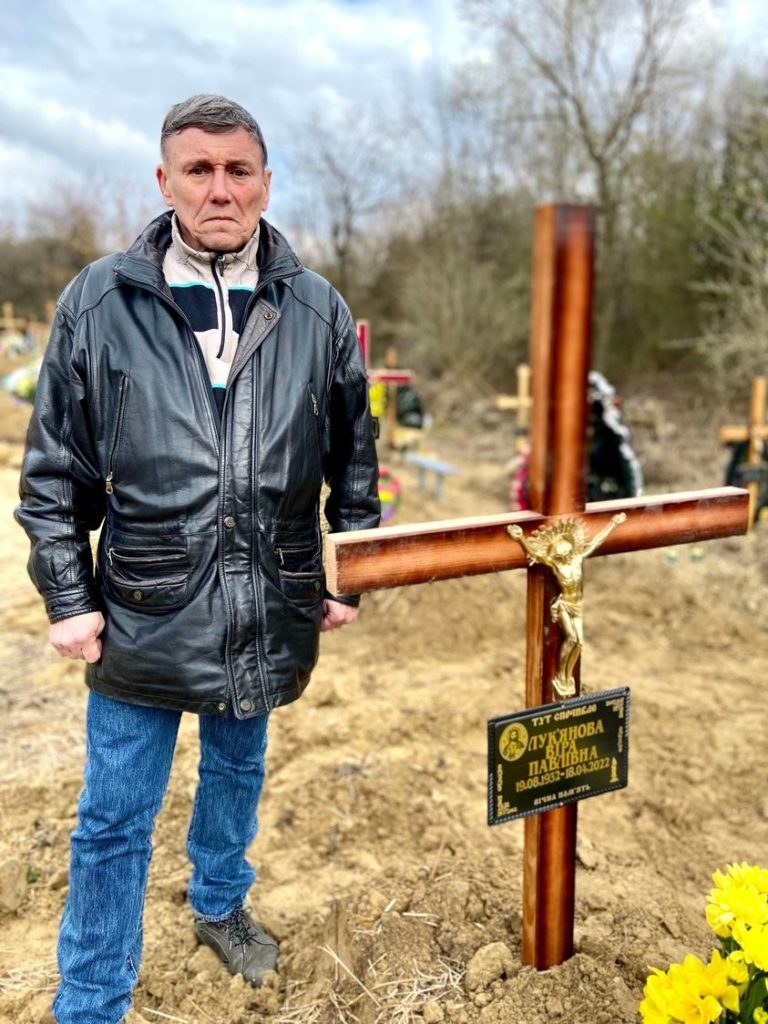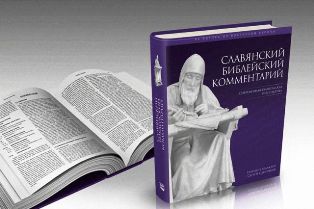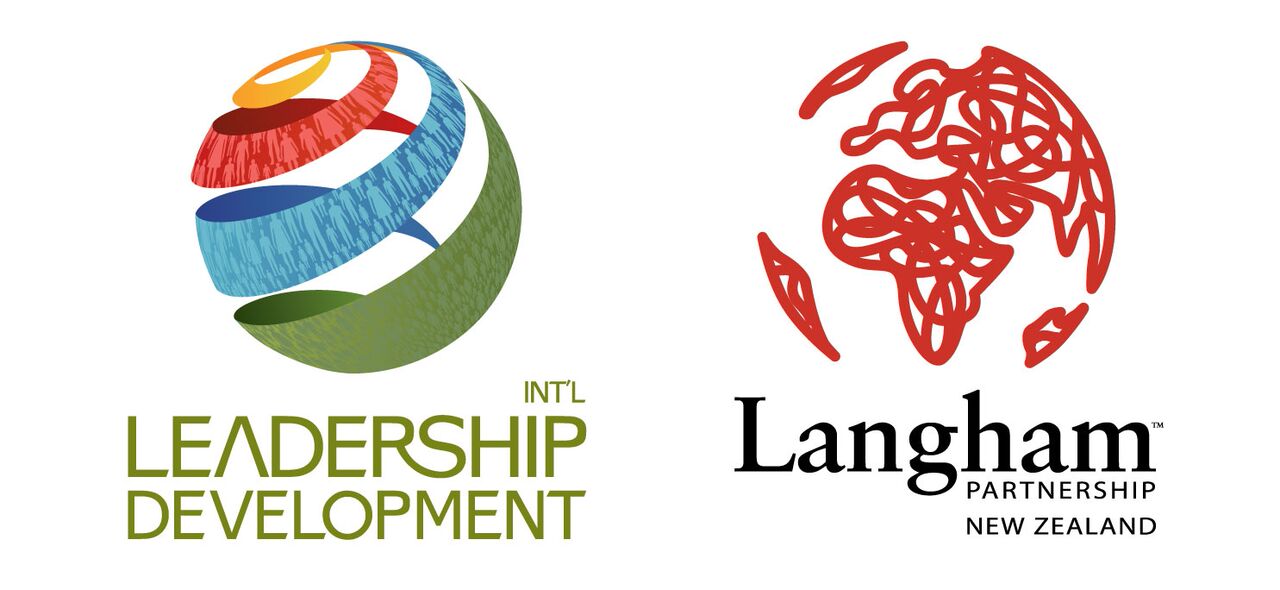Ukraine Refugee and Slavic Bible Commentary Appeal
Slavic Bible Commentary in English
The need for English translation of the Slavic Commentary Bible.
Langham Publishing is currently working with Euro-Asian Accrediting Association (E-AAA) on the translation and publication of the Slavic Bible Commentary in English. Langham works in partnerships and listens to the needs from partners in the Majority World.
Following the publication of the Slavic Bible Commentary in Russia in 2016, E-AAA identified the need for an English translation of the SBC. The English translation would be a resource and ministry tool available for English speaking pastors, church leaders, church members and scholars in countries across the Slavic region, Eastern Europe, those working in the region from elsewhere, diaspora communities and also globally.
Slavic Bible Commentary English Translation – Progress, Impact of Russian invasion of Ukraine and Budget
Work on the English translation of the Slavic Bible Commentary commenced in 2017, with the work being led by Taras Dyatlik, E-AAA and coordinated by Mary Raber (St. Louis, Missouri), a service worker through Mennonite Mission Network. Kataharina Penner, Coordinator of the Central and Eastern European Bible Commentary is also a key liaison/administrative support for the SBC English project and the Central Asian Bible Commentary.
A team of 7 translators worked on translating all the individual Bible book Commentaries, introductions to books and Theological Articles. The translation of the Slavic Bible Commentary from Russian into English was completed in January 2022.
During 2022 and 2023, final stage work is progressing to get the English translation published. Ongoing work includes:
- editing of the text – New Testament books have been edited, but work is continuing on editing of Old Testament books and Theological Articles.
- Proof reading
- Typesetting
- Publishing and printing of at least 2,000 copies as well as being published in e-format– due to be in April 2023.
The Russian invasion of Ukraine has had a significant impact on a number of Langham projects, including the English translation of the Slavic Bible Commentary. The original plan was that E-AAA in Ukraine would do all the editing, proof reading and typesetting and would then deliver the final files to Langham for publishing and printing. However, plans have had to change and there was significant urgent work to ensure that files were accounted for and transferred to servers held by Langham. Langham Publishing will do the typesetting (layout and design), cover design, final proof reading, publication and printing – using both internal staff and their freelance team.
Alongside the work on the English translation of the Slavic Bible Commentary:
- The Slavic Bible Commentary Russian edition was revised – the Russian edition revision has been published by E-AAA and printed in Ukraine. The print run of 3,000 copies, was completed before Russia invaded Ukraine. The copies are currently in Kyiv, Ukraine, but there is no update on the condition of the books, so they are planning to be written off.
- Some time ago a Ukrainian translation of the Slavic Bible Commentary was considered but the local teams there felt it more important to stick with the wider use language and focus on other languages for the Central Asia Bible Commentary.
- Central Asian Bible Commentary – work commenced on a contextualised Central Asian Bible Commentary (adaptation of the Slavic Bible Commentary) in Russian to be published in hard copy and e-book format and e-book only translations in Uzbek, Kyrgyz and Kazakh. Due to the current situation in Ukraine, there is a great deal of uncertainty around the CABC projects and they are currently effectively on hold. But urgent work has taken place to ensure the gathering and transfer of files to safe locations.
Here is a brief update from Taras about Humanitarian needs
“For you it may be just a $20 bill… For our Ukrainian people in the war zone, where grocery and medical stores do not work, it means a box of food and medical help for … a week… $20 = 1 box = 1 week of life of one person… Sorry for mentioning this, but you can think about it the next time when you buy something for $20, not to stop you from buying, but just to pray for those who can physically survive for a gift of $20 for a week. Thank you so much for your support, the people of the Bridge, and please pray for our volunteers from the TCCI (The Theological College), who often deliver food supply under shelling. Peace be with you ❤️ “

Eastern Europe Institute of Theology [EEIT]
The Eastern European Institute of Theology is launching the Summer School of Theology as a form of non-formal education. Its purpose is to create a platform to support the viability of the Ukrainian theological community and its involvement in the global dialogue.
Topic of the Summer 2022 session: Theology of the Other under the Pressure of the Empire
Click here to find out more…
Can you help spread hope in Eastern Europe
“What kills my soul is the eyes of the refugees regardless the age…”
Where do I start?… The above was said to me by one of our team in the field last week and it disturbs me. As a supporter of LeaDev-Langham I wanted to share this.
In these last few weeks I have been deeply troubled, overwhelmed at times, and feeling heavily burdened about the dreadful situation in Ukraine. And I’m sure you too have been affected by what is happening.
You are probably aware that the Russian invasion of Ukraine has caused the greatest humanitarian crisis since World War II. Although we see the pictures of destruction and mass migration in the news every day, it’s still very difficult to comprehend the enormity of the tragedy unfolding. Almost 7 million Ukrainians have fled their homeland for safety, and that number grows daily. And many, many of these will be Christians who must be struggling to understand why God has seemingly abandoned them in their greatest hour of need. Despite their fervent constant prayers, they must feel God is ignoring their pleading.
This photo of Oleg says it all. It was sent to me by Taras, one of our key people on the ground who had met with this family, a son and mother, when he visited them at a refugee centre.
“As I met with dozens and dozens of other refugees… What kills my soul is the eyes of the refugees regardless the age…” Taras said. He told me their story.

“Today Lukyanova Vira Pavlivna was buried in Lviv. She is a Russian woman from Tver. She lived in Kharkiv for 58 years. A widow from early year, Lviv had two children and 42 years of work experience at a local plant. She never left the region of Kharkiv until April this year. Three months before the start of the full-scale war in Ukraine, Vira Pavlivna’s health deteriorated significantly. She used to cope, but after a stroke she began to need care. Her son moved in with his mother.
At 5am on February 24 in the block of flats called “Saltovka” the first explosions sounded. For the next month, when a very frail mother asked her son Oleg about the explosions, he calmed her down – telling her it was just a storm. When there was no light in the house and the mother asked him to turn on the lamp, Oleg lit a candle.
When the missile arrived at the entrance of their apartment complex, Oleg decided to leave. With the help of volunteers, he and his mother came to Lviv. Vira lived the last ten days of her life in Lviv.
At the funeral service her son Oleg repeated: “I love you, mom. I am so sorry!” Next to him stood volunteers – two from the Ukrainian Catholic University, three – from the Lviv Theological Seminary. The prayer was led by an Orthodox priest. He asked God for a newfound Vira to rest in heavenly Jerusalem, a place where there are no more missiles, no air alerts, no need to escape. He finished by saying “I’ll visit you, Mom, no matter how far away you are.”
I was very encouraged with something else Taras said to me. Last week when he had visited the ten refugee hubs that our partners fund, he was really appreciative of our support.
“With the financial and prayerful support we receive from countries like New Zealand and others, I can tell you that I’m very much encouraged with what I witnessed. Our theological seminaries have not only been advancing Christian leaders for the Kingdom of God, but also stood by with the suffering people for the Kingdom of God, manifesting the Community of Hope not only with the words, but also with the co-presence and compassionate hands.”
What are we doing right now? Taras said that at the moment:
- 153 faculty and students have volunteered to help with refugee ministry,
- 35,500 people received food and medical help in the last few weeks,
- 2600 people were evacuated from ‘hard zones’ to our centres
- Hundreds will be hosted for long term
Our support to date has made a difference!
I contemplate if one answer to the prayers of the refugees is the way we and others around the world respond to their plight. I have struggled to decide on how we can make a significant contribution from the other side of the world. I do know that we must never give up hope and somehow, we must let the Ukrainian people know that even though we are the most distant country from them, we are standing with them and daily lifting them up in prayer.
In discussion with our colleagues from the Slavic region and from Langham Partnership’s Literature programme, we’re being asked by those close to ground zero for this help.
One suggestion has been urgent assistance with the translation of the Slavic Bible Commentary. This might seem a strange thing to be raising now but the strong feeling is that when this conflict ends, the challenge facing many Christians is renewing their faith in God and developing the will to start again or pick up where they left off. This important document will also be an example of Christian’s on both sides of the conflict working together.

The Slavic Bible Commentary was initially published in Russian and launched in October 2016. The work involved 94 authors from both the Ukraine and Russia. This group of academics modelled repentance, forgiveness, and the ability to work together whilst many others were dividing along state and denominational lines. The scholars themselves were a witness in the writing of the book – now the commentary itself. It was significant that this team worked together during a time where regionally there were many divisions. An updated revision of the Russian edition was printed in the Ukraine and completed before Russia invaded Ukraine. It is a ground-breaking work being the first-ever evangelical commentary written by contemporary Slavic scholars. It is written with culturally relevant illustrations, proverbs and examples, pastors and leaders will be equipped to help believers learn and apply God’s Word in the Slavic context. You might ask why the need for a Slavic Bible Commentary? The simple answer is to help provide God’s truth for Eastern Europe. While the church in former communist countries has experienced greater freedom since the Soviet bloc disbanded, Dr. Peter Penner, New Testament editor of the Slavic Bible Commentary, still calls it a “minority, persecuted church.”
Recovering from the history of an oppressive regime, there is a lack of qualified leaders and resources to shepherd believers with God’s Word to bring hope, healing and the light they need to persevere in dark places and grow as followers of Christ.
The gospel is not foreign to Eastern Europe. But while the church has experienced a great measure of freedom since the Soviet bloc disbanded, believers in this region still struggle to find hope and healing. And yet 8 in 10 of their pastors lack the training or resources needed to shepherd believers with God’s Word. Today Eastern European preachers rarely penetrate either the world of the text or the contemporary world, and the content of their sermons quite often has nothing to do with the given biblical text. Preaching generally lacks contextualization and seldom considers any of the social, cultural or philosophical challenges which the contemporary church is facing.
LDL has agreed to help fund the development of the English translation of the Slavic Bible Commentary. It will be a resource and ministry tool available for English speaking pastors, church leaders, church members and scholars in countries across the Slavic region, Eastern Europe, those working in the region from elsewhere, diaspora communities and also globally. It will be a vital tool when life starts to return to some form of normality in that part of the world.
Could I ask you please to help us in one of two ways while you uplift the people of Ukraine in prayer. Would you consider making a donation to the refugee ministry of the seminaries bringing hope and light, or consider a donation toward the printing of the Slavic Bible Commentary in English? A tool that will feed God’s people in a time of desperate hardship?
Your special donation will help us…
I’d like to finish with a word of encouragement from one of our special team at Lviv Hub, the Eastern European Institute of theology, Lviv Theological Seminary:
“Hundreds of the thousands.. no.. millions.. thank you for partnering with our seminary hubs and saving human lives.. dozens of the thousands with the help of our seminary leaders, faculty, students and graduates.. thank you.”
OPTION 1: Donate to the Refugee Ministry of the Seminaries, bringing HOPE and LIGHT
CODE: UKR Refugee
OPTION 2: Donate toward the printing of the Slavic Bible Commentary [SBC] in English
CODE: UKR SBC

